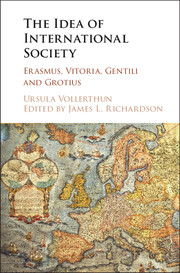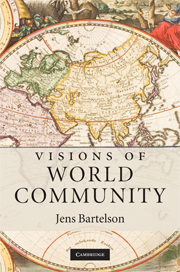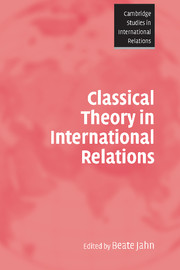The Idea of International Society
This book offers the first comprehensive account and re-appraisal of the formative phase of what is often termed the 'Grotian tradition' in international relations theory: the view that sovereign states are not free to act at will, but are akin to members of a society, bound by its norms. It examines the period from the later fifteenth to the mid-seventeenth centuries, focusing on four thinkers: Erasmus, Vitoria, Gentili and Grotius himself, and is structured by the author's concept of international society. Erasmus' views on international relations have been entirely neglected, but underlying his work is a consistent image of international society. The theologian Francisco de Vitoria concerns himself with its normative principles, the lawyer Alberico Gentili - unexpectedly, the central figure in the narrative - with its extensive practical applications. Grotius, however, does not re-affirm the concept, but wavers at crucial points. This book suggests that the Grotian tradition is a misnomer.
- A thorough re-appraisal of central early thinkers in international relations theory, providing a fresh look at a seemingly well-known topic
- Preserves the individual style and originality of the four main thinkers, using selected quoted passages
- Clearly structured by the author's concept of international society, it makes for comparison, while permitting generalisation
- Erasmus is included for the first time, broadening and extending the knowledge of the period
Reviews & endorsements
Advance praise: ‘Vollerthun provides an original and balanced reading of one of the critical phases in the formation of international law. Bringing unexpected authors, such as Erasmus, to the table, she shows in which respects Grotius failed to integrate a complex discussion that responded to urgent needs of his time and would become one of international law's main tenets, Grotian or not.’ Andreas Wagner, Goete Universität, Frankfurt am Main
Product details
October 2017Hardback
9781108417143
264 pages
235 × 156 × 19 mm
0.5kg
Available
Table of Contents
- 1. Three ways of thinking about international relations
- 2. Desiderius Erasmus of Rotterdam
- 3. Francisco de Vitoria
- 4. Alberico Gentili
- 5. Hugo Grotius
- 6. Conclusion.








